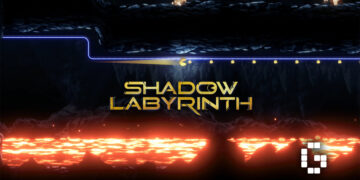Iain Garner, Co-Founder of Neon Doctrine rallied today against an unnamed “Platform X”, citing the game’s lack of transparency and obtuse requirements for marketing games on its platform.
While Garner never mentions the company by name other than Platform X, he does mention that it’s a company that doesn’t use Game Pass, and also denied it being Nintendo. Kotaku reports the company as being PlayStation, however no official confirmation has come from either side.
In the Twitter thread, Garner explained what the process was like trying to get the platform to feature a game. These include having to submit a platform-specific trailer, as well as writing a blog post and submitting the game to multiple compliance checks “spread over 3 generations of backend software”
He also mentioned that the process of getting the blog post and trailer themselves are tied to having an Accounts Manager with the platform, which would only be assigned based on your Resource Level, something the platform doesn’t give you access to.
His biggest gripe seemed to be that you could get around all this with an alternate deal, that involved a minimum USD 2500 (RM103,857.50) payment to feature games on the storefront, alongside the platform’s regular 30% cut of all sales.

On top of that, he said that discounts on the platform were entirely at the discretion of the platform holder, making things like launch discounts incredibly hard to request. Considering Neon Doctrine deals in indie games, Garner’s frustration makes sense- discounts are a big part of indie game marketing, especially if they’re at launch.
“It’s been literal years since we could put a title of ours in discount, and I spoke to some other VERY POPULAR devs today and they had the same experience. So even if your game does well at launch and thrives on other platforms, you may still never be invited? Y? who knows?“, Garner says.
He also commented that while Neon Doctrine is a relatively well-to-do publisher, the hurdles would only seem worse for smaller ones:
“And please bear in mind I am an English speaking British guy who can travel the world, attend showcases, shake hands and meet with power in these situations. If this is my experience imagine what it’s like for someone without my level of priviledge [sic]”, he says.
What This All Means
Garner’s words describe several major issues, Primarily, that the platform’s lack of transparency is bound to frustrate any publisher just trying to do their job and get their games seen by players.
At the very least, communicating to developers and publishers what level of resource access they have would go a long way towards helping them market it more efficiently.
Secondly, the fact that , as Garner describes it, all games are treated equally, means games with smaller marketing budgets would be less likely to shell out the extra money to get their games featured.
However, what’s unique here is the featuring fee, which is pretty likely to be confidential information. Other platforms make no mention of it, although the 30% cut is practically industry-standard, with platforms like the Google Play Store and Apple App Store famously having used that standard too, setting off the row with Epic Games.









![[EXCLUSIVE] Creative Masterminds from Gearbox Software Reveal What Makes Borderlands 4 Worth the Wait](https://cdn.gamerbraves.com/2025/07/Borderlands-4-at-Bilibili-World-2025_Interview_FI-360x180.jpg)




![[ASIA EXCLUSIVE] Bringing Back a Classic: Inside the Making of FINAL FANTASY TACTICS – The Ivalice Chronicles](https://cdn.gamerbraves.com/2025/06/FFT-Ivalice-Chronicles_Interview_FI2-360x180.jpg)













